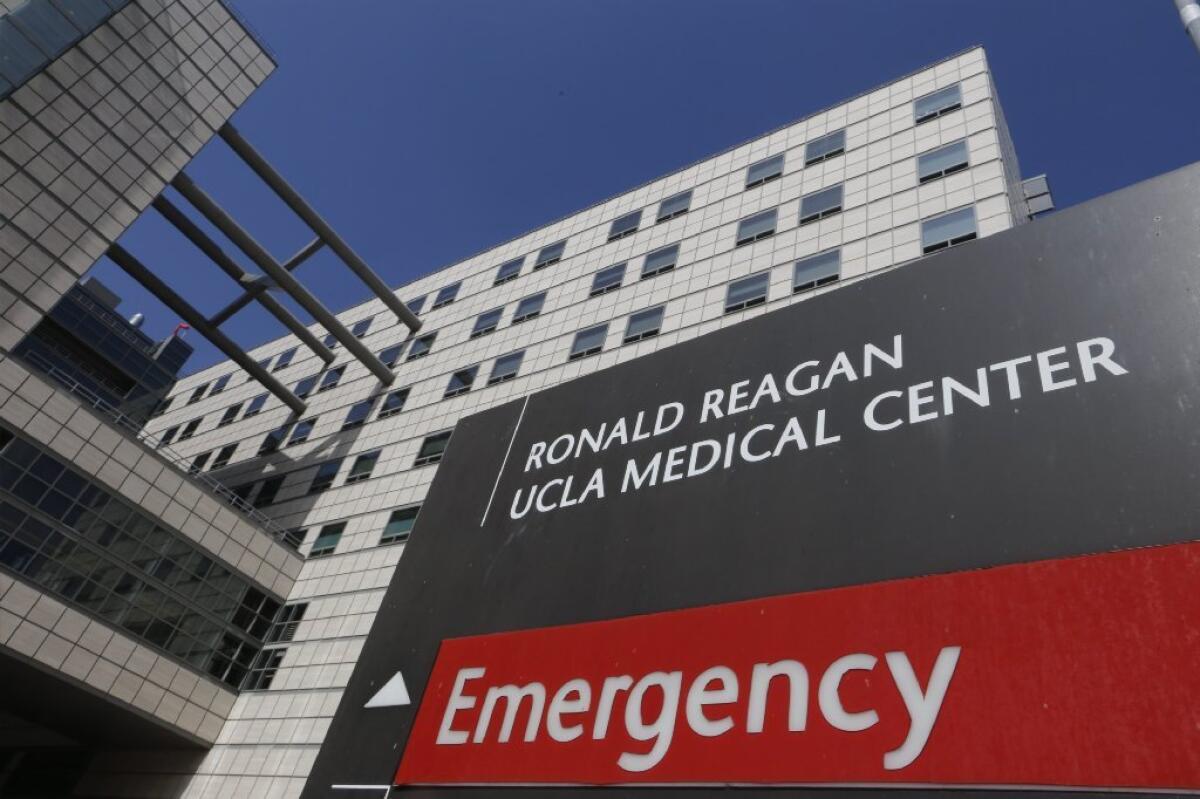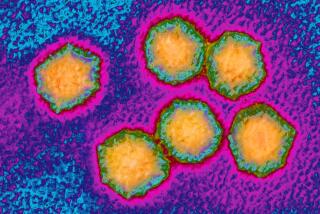UCLA outbreak: 48-year-old liver transplant patient died in December

One of the two patients who died in connection with a superbug outbreak at UCLA’s Ronald Reagan Medical Center was a 48-year-old liver transplant patient from the Central Valley, according to the family’s attorney.
In addition to the two deaths, five other patients were infected by contaminated medical scopes at UCLA. The university is also advising 179 other patients to get tested for exposure because they underwent a similar procedure sometime from Oct. 3 to Jan. 28.
The female transplant patient died in late December after being treated with a scope carrying the drug-resistant superbug CRE, Los Angeles attorney Pete Kaufman said.
He declined to identify the deceased patient by name. “She is one of the two confirmed deaths,” Kaufman said Friday.
His firm is also representing an 18-year-old man who became infected with CRE in October after undergoing ERCP, or endoscopic retrograde cholangiopancreatography.
The man was treated for his CRE at UCLA Medical Center and released. He returned to the hospital in January and was reinfected with the dangerous bacteria after a second ERCP.
Kaufman said the man is still undergoing treatment at UCLA and his prognosis appears good.
UCLA has declined to comment on specific patients, citing confidentiality laws.
In a recent safety alert, the U.S. Food and Drug Administration said it had received reports of 135 patients being potentially infected by tainted duodenoscopes from January 2013 to December 2014.
The incident at UCLA marks the latest in a string of hospital outbreaks across the country since 2012 involving deadly bacteria and medical scopes.
At issue is the duodenoscope, a specialized device inserted down the throats of about 500,000 patients annually to treat cancer, gallstones and other ailments of the digestive system.
But these scopes are difficult to disinfect through conventional cleaning because of their design, so bacteria may be passed from patient to patient.
These instruments are not the same type used in more routine endoscopies and colonoscopies.
Let us know if you have been affected by the outbreak at UCLA
Twitter: @chadterhune
More to Read
Inside the business of entertainment
The Wide Shot brings you news, analysis and insights on everything from streaming wars to production — and what it all means for the future.
You may occasionally receive promotional content from the Los Angeles Times.











